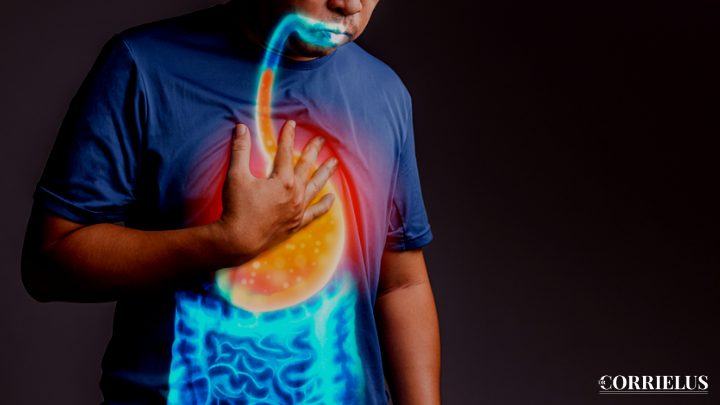It’s normal and often to flatulate or snort. Sometimes excessive belching or flatus can be embarrassing or interfere with everyday activities, especially if it’s accompanied by bloating, pain, or enlargement of the abdomen (distention). However, these signs and symptoms frequently don’t indicate a serious underlying problem and can be controlled with straightforward lifestyle adjustments.
There can be a problem if belching, gas, or bloating interfere with your everyday activities. Learn how to treat gas pains and how to prevent them, as well as when you should visit a doctor.
Belching: Expelling extra air
Burping is another name for belching. The process allows your body to release extra air from the upper digestive tract. Belching is typically brought on by overconsuming air.
Most of the time, this air doesn’t even make it to the stomach; instead, it builds up in the esophagus.
If you talk while you eat, chew gum, suck on hard candies, drink carbonated beverages, or smoke, you can swallow too much air when you eat or drink. Even when they aren’t eating or drinking, some people have the uneasy tendency of swallowing air.
By encouraging increased swallowing, acid reflux or gastroesophageal reflux disorder (GERD) can occasionally lead to excessive belching.
Inflammation of the stomach lining or an infection with Helicobacter pylori, the bacteria that causes some stomach ulcers, may also be associated with chronic belching. These instances involve belching that is followed by additional symptoms like heartburn or stomach pain.
How to control belching?
Belching can be minimized if you:
Eat carefully and drink slowly.
By taking your time in chewing and swallowing, you can reduce your air intake. Try to prepare meals when you’re not agitated or rushing about; doing so will reduce the amount of air you swallow.
Avoid beer and fizzy beverages.
Gasses such as carbon dioxide are released.
Avoid the hard candy and gum.
You swallow more frequently than usual when you chew gum or suck on hard candy. You’re ingesting air as part of your meal.
Avoid smoking.
Smoke causes you to breathe in air as well as swallow it.
Look over your dentures. A loose denture can make you swallow more air when you eat and drink.
Be active.
After eating, going for a quick stroll could be beneficial.
Get heartburn treatment.
Over-the-counter antacids or other treatments may be useful for sporadic, moderate heartburn. Prescription medication or other therapies for GERD may be necessary.
How can this be avoided?
To avoid having too much gas, it may be helpful to:
Cut out specific foods.
Beans, peas, lentils, cabbage, onions, broccoli, cauliflower, whole-grain foods, mushrooms, some fruits, beer, and other carbonated beverages are some of the common gas-producing culprits. See whether your gas improves by attempting to eliminate one food at a time.
Examine labels.
You might have some lactose intolerance if dairy products cause you problems. Watch what you eat and try lactose-free or low-lactose options. Increased gas may also be a side effect of several indigestible carbohydrates (sorbitol, mannitol, and xylitol) present in sugar-free diets.
Eat less stuff that is greasy.
Food has extra time to ferment since fat delays digestion.
Reduce your intake of high-fiber foods temporarily.
While there are many advantages to fiber, many high-fiber diets are also excellent gas generators. After a pause, gradually reintroduce fiber to your diet.
Take an over-the-counter medication.
Some products, including Lactaid and Dairy Ease, can aid in lactose digestion. Although the efficacy of products containing simethicone (Gas-X, Mylanta Gas, and others) has not been established, many consumers believe that these products are effective.
Bloating: A common yet poorly understood condition
Bloating is the feeling that your stomach is full. An obvious or palpable increase in abdominal size is referred to as distension. When abdominal sensations don’t seem to be resolved by belching, passing gas, or going to the bathroom, people frequently describe them as bloating.
It is unclear exactly how intestinal gas and bloating are related. Many people who experience bloating don’t have more gas in their intestines than most people do. Many people, especially those who suffer from irritable bowel syndrome or anxiety, may be more sensitive to stomach discomfort and intestinal gas than to an abundance of it.
Even then, bloating may be alleviated by altering one’s habits to stop belching or one’s diet to stop flatus.
A word from the Doctor
Bloating, excessive belching and gassiness frequently go away on their own or with little adjustments. If you simply have these symptoms, it’s unlikely that there is a major underlying illness present.
These warning signs and symptoms can point to a digestive disorder. Experiencing digestive difficulties might be humiliating, but don’t let that stop you from getting treatment.
If you have a concern regarding your heart health or want to know more, make an appointment with Dr. Sanul Corrielus now!



